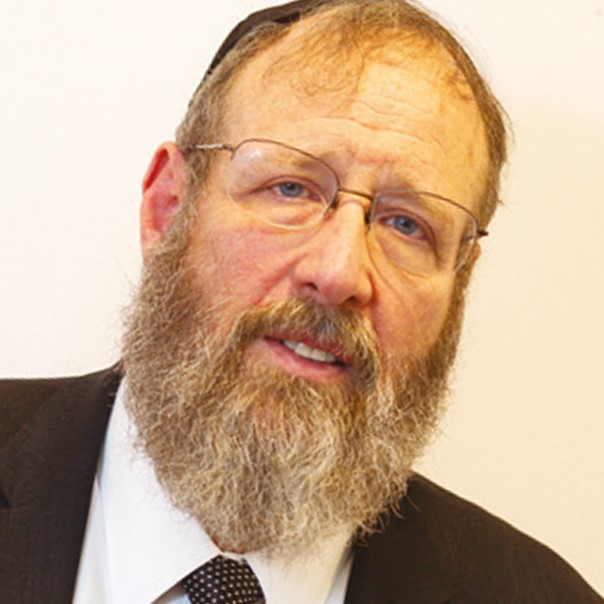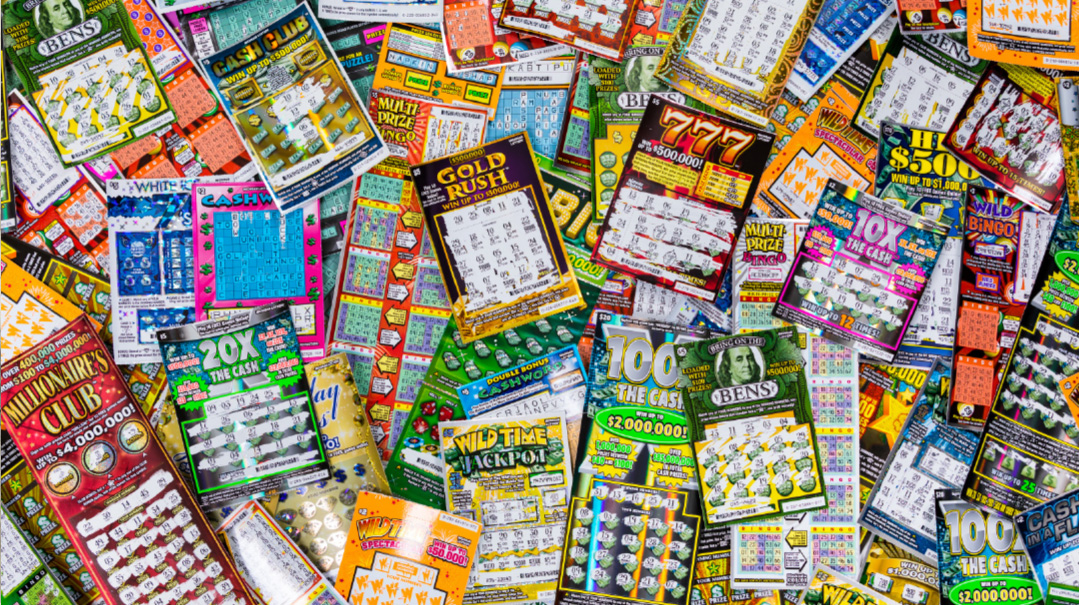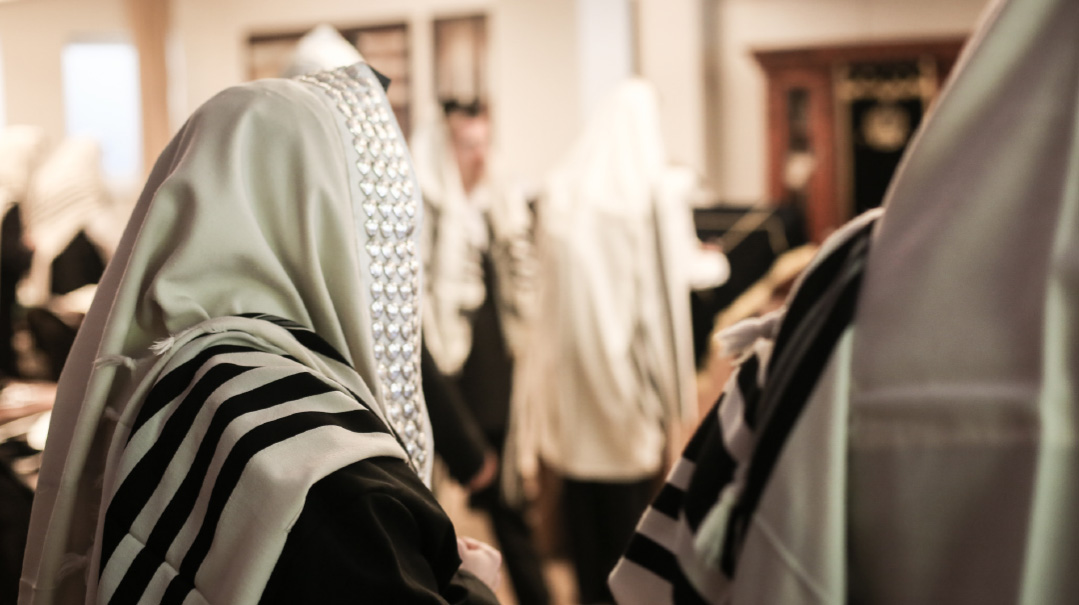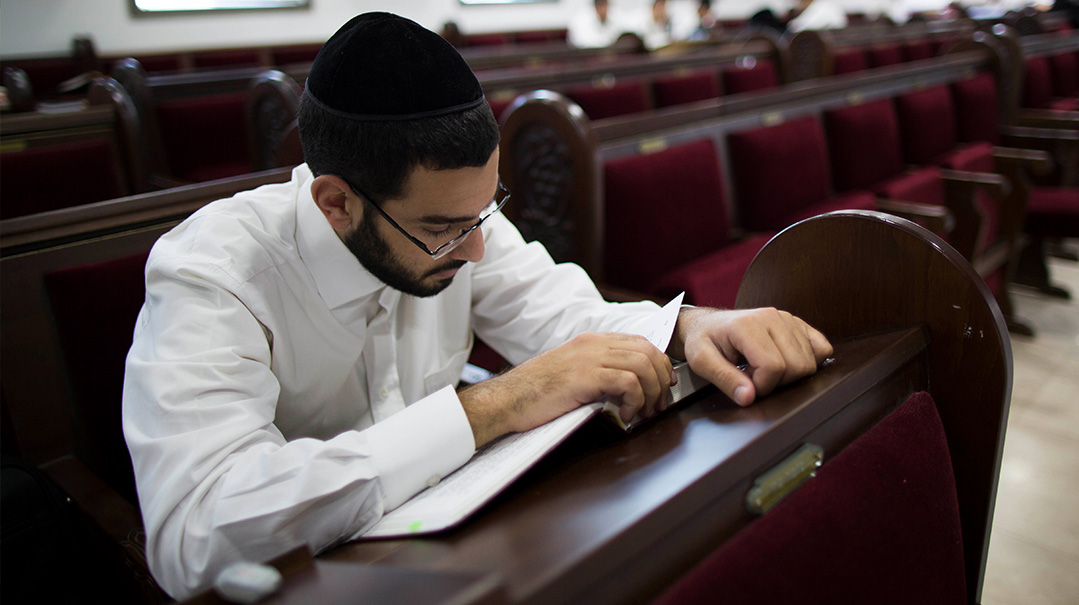By Your Blood You Shall Live

Your easy and grand achievements are worthy, but your chiyus comes from the areas that you bleed for
A
group of Slonimer bochurim — the future Nesivos Shalom among them —slowly filed into the room of their Rebbe, the Beis Avrohom, to be mekabel pnei rabo on the first day of Pesach.
“Kinderlach, did you read the Haggadah last night?” he asked. The Rebbe looked at them with piercing eyes and began quoting the pasuk brought in the Haggadah: “Vatirbi, you have grown; Vatigdeli, you have developed. Shadayach nachonu, you are ready to nurse others, to teach and to be mashpia. No?” And then he bore down and said, “Ve’at eirom va’eryah, you are but naked and bare!”
The Nesivos Shalom, recounting the story, remembered the frozen silence that seemed to last forever as these powerful words hung heavy over the bochurim. No one moved a muscle.
The Rebbe’s countenance then softened, and in a warm voice, he finished the pasuk: “Va’omar lach b’damayich chayi. Va’omar lach b’damayich — that which a person bleeds for is what gives him life.”
When I heard this account myself from the Nesivos Shalom in a shmuess [it was also printed in the Slonimer Haggadah Toras Avos], I sensed that the Rebbe was reliving that profound moment of critique and instruction. The point was clear: A shallow person measures his accomplishments by quantity. How much? How many? But the real measure of ruchniyusdik achievement lies in how deeply it is anchored in the very essence of the person. To what degree is this deed an expression of the self?
From Our Deepest Being
Klal Yisrael was at an incredibly low spiritual level in Egypt. But that understates the peril in which our nation stood; we actually were not even fully alive. Like an unborn fetus, we had not yet proven our ability to draw our first breath as an independent, living entity.
Hashem therefore wanted to endow us with merits that would ensure our viability. It was not possible, nor would it be effective, to simply give us an abundance of mitzvos. Hashem therefore focused our efforts on just two: the unique mitzvos of Pesach and bris milah. The singular feature of these mitzvos was that we would have to bleed for them, and it was the bleeding itself that ensured that we would live.
Let us take a closer look at those mitzvos. The bleeding involved in their performance is a lot deeper than the physical emission of blood.
The sheep was the Egyptian deity. Imagine bulldozing a mosque in Iran or in Saudi Arabia. What would the reaction be? Slaughtering a sheep in Egypt was the equivalent, and therefore, by sacrificing the Korban Pesach, Bnei Yisrael were risking their very lives.
The blood of milah similarly goes a lot deeper than the blood spilled at the actual circumcision. The sanctity of the bris demands the restraint and containment of our strongest passions and desires. Since these desires are man’s greatest pleasure and craving, they appear to be his essence.
Rabi Elazar ben Durdaya (as chronicled in Avodah Zarah 17a) lived a very promiscuous life. When he decided in an abrupt instance to do teshuvah and stop his sinning immediately, he died. For when a person is deeply enmeshed in taavah, it attaches itself to his deepest recesses of life and self. Therefore, restraint in this area must likewise emanate from the deepest recesses of a person’s being.
Beyond the Comfort Zone
When we learn about the days of old, we are usually taught that people of previous generations occupied a much higher madreigah than we do today. There is no doubt that the giants such as the Chofetz Chaim, Rav Chaim Ozer, and many others towered far, far above us. But what about the average frum Yid of those times?
Arguably, we maintain a higher standard for mitzvos like tefillin and esrogim than was available to the average Jew in those days. In addition, many more people today have attained high levels of Torah knowledge, and so many more people are sitting in kollel, learning full-time. Nevertheless, there is a persistent sense that we do not hold a candle to the madreigah of our predecessors.
That intuitive feeling is correct, and the reason is that their Yiddishkeit was infused with b’damayich chayi — with their very blood. Life was very hard. Keeping Torah and mitzvos was extremely difficult. Their mitzvos were fulfilled with their last ounce of blood, and therefore, their mitzvos gave them life. These sacrifices were the b’damayich chayi of those generations.
But what are we who live in the modern era to do? Does Hashem expect us to reject the plethora of blessings and conveniences that He has given us? Should we go back to scrubbing floors for Pesach the old way, just because it was more difficult? Should we exert ourselves by walking a few miles to shul or yeshivah when we have the ability to drive? Certainly not.
There are, however, two areas in which we can act upon b’damayich chayi and thereby inject a more powerful surge of life-force into our ruchnyius. The first of these arises on those occasions when we are called upon to do something which is difficult; we should not hesitate to do it.
When all of life was difficult, no one could excuse himself from a task because it was difficult; that was life. But today, when most everything is easy, comfortable, and convenient, we hesitate to step out of our comfort zone. Consider the common diplomatic expression, “I don’t feel comfortable doing such and such.” While this is usually an excuse for something that we don’t wish to do, why does “lack of comfort” pass muster as an appropriate reason to shirk some task? The fact that it does speaks volumes.
The Good Fight
A more important takeaway for us is the frame of reference provided by b’damayich chayi for judging the value of our efforts and accomplishments. Great achievements naturally imbue us with a sense of value and purpose. Thus, the person who is good at learning and has accomplished a great deal is inspired to learn still more.
But what energizes the person who struggles mightily with his attention span and/or comprehension, and achieves a minimal amount after great effort?
Likewise, a person who can give large amounts to charity and see the difference his donations have made has ample motivation to keep giving. But what about the person who can only give a small sum, and even that’s a struggle? What’s the point?
And what about the person who works several jobs but cannot afford anything “extra” because his entire salary is depleted by the time he pays tuition? What encourages him to keep working?
Further, some people seem to be natural tzaddikim and are able to achieve a level of tzidkus. But what about the person whose life is an endless struggle against the yetzer hara? Why struggle today only to experience the same struggle again tomorrow?
To all of these people, and to ourselves with regard to our own personal, never-ending struggle, we say: b’damayich chayi. Your easy and grand achievements are worthy, but your chiyus comes from the areas that you bleed for. The chaining yourself to the Gemara with all your effort; the few dollars of tzedakah that are so difficult to come up with; the tuition that you pay by working so long and hard — all of these are your b’damayich chayi! What you consider a minimal achievement is in fact your essence as an oveid Hashem.
Infusion of Life
A while back, a rav in an affluent community related the following story to me: One of his young balabatim, a very bright and capable fellow, got a job in the world of investments. For an entire year he worked hard at pulling together a complex and lucrative deal, and with Hashem’s help, he was successful. The date was set for the final closing, at which all the representatives of the various parties would be present. This young man would then earn a fine commission, which would jumpstart his career.
But there was one hitch: the only day that everyone could come together was Shabbos. This rav consulted a major posek and mapped out a plan whereby the young man could attend the closing without incurring any chillul Shabbos.
A few weeks later the rav asked this young man how the closing went. The young man replied, “I didn't go.”
“But why not?” inquired the rav.
The aspiring investor explained, “My grandfather came to this country as a poor immigrant. Every Monday he had to look for a new job, because he would not work on Shabbos. Some weeks there wasn’t even enough food. But he kept Shabbos all his life. If he could keep Shabbos at the price of feeding his children, then I can keep Shabbos properly even at the possible cost of a glamorous career.”
By spilling his blood for Shabbos, the grandfather infused life into his family, whose Yiddishkeit remained intact in America. So powerful was that force that it was still going strong two generations later, when it lifted his grandson’s ruchniyus onto a higher plane.
Indeed, b’damayich chayi, b’damayich chayi!
Rav Aaron Lopiansky is the rosh yeshivah of the Yeshiva of Greater Washington, Tiferes Gedaliah, and a talmid of Rav Chaim Shmuelevitz, Rav Nachum Partzovitz, and his father-in-law, Rav Beinish Finkel. He also learned under Rav Moshe Shapiro. Rav Lopiansky has authored several seforim, including the recently released Orchos Chaim, Ben Torah for Life.
(Originally featured in Mishpacha, Issue 956)
Oops! We could not locate your form.






